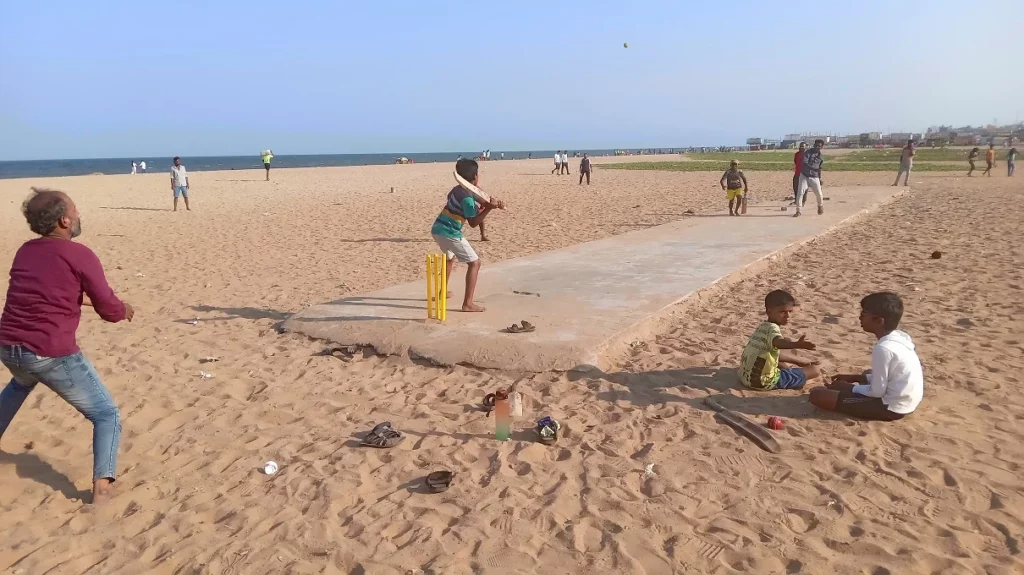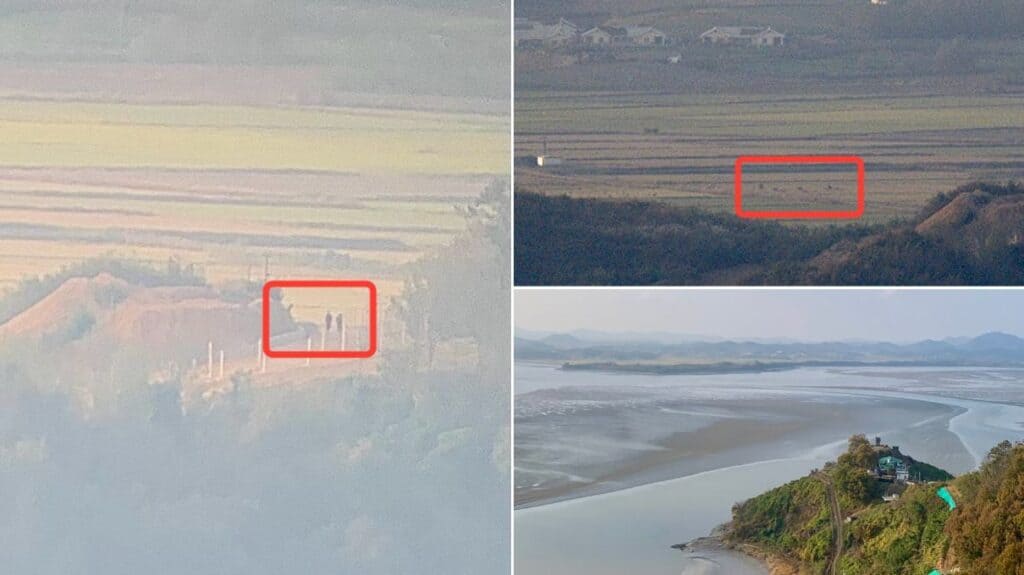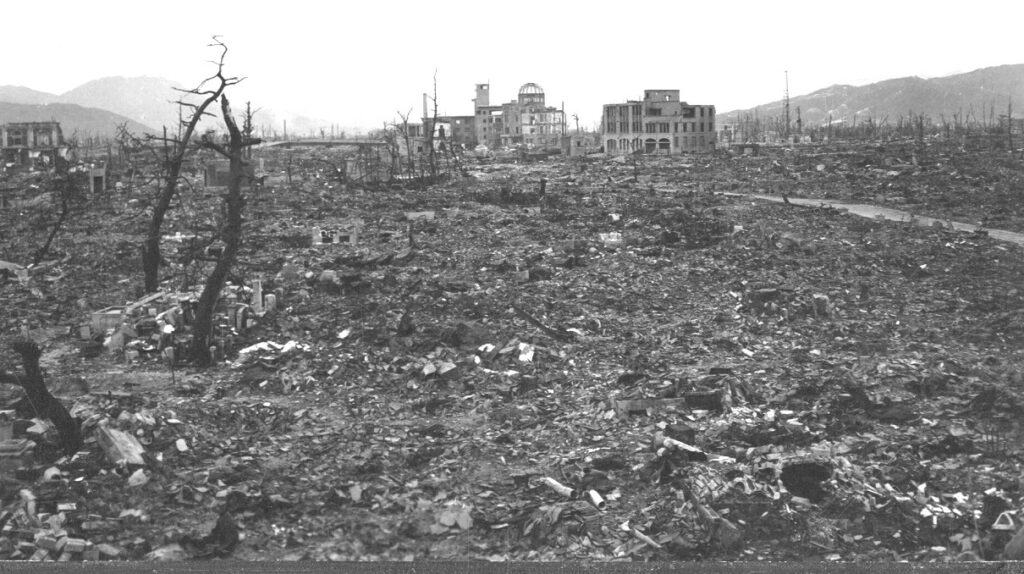“I will go pray now for 10 minutes.” Our dinner host leaves me and spouse Theo in the front room of his house. Family pictures of his parents and children decorate the walls. Theo and I sit on wood-frame couches with extra-firm cushions. I glimpse Mohammed quickly walk by the doorway, and a moment later we hear a motorcycle start up and leave.
“Did he just leave?”
Yes, I say, he left.
Mohammed’s wife enters and puts a large, lidless empty pot onto the plush area carpet. It’s big enough to cook a couple pounds of pasta. She smiles, we smile, she leaves. We have no idea what the pot is for; maybe it’s to throw bones in, like in the Philippines. We make other guesses and wonder what will happen next.
Mohammed’s mother comes into the room with his young daughter. Grandmother and granddaughter sit on the empty couch. We don’t speak Arabic, they don’t speak English. Theo crosses the room to sit next to Mohammed’s mom. He shows her photos of his own mom, Diane, who is 86 years old. She smiles, hiding teeth, when I realize I’m not sure she has any. Theo shows pictures of his mom with us, all traveling together through Malaysia and Indonesia a few months prior. Mohammed’s mom and daughter look on as Theo flips through pictures. He goes through Penang and Port Dickson in Malaysia, all of northern Sumatra in Indonesia – including orangutans in the jungle, and back to Kuantan in Malaysia. Time passes and Theo is a kind man to pass the time with.
Mohammed’s bike shuts off on the other side of the home’s brick wall and he returns to the room. His mom, a tiny woman, wrinkled, wearing all black with a babushka-style head cover, leaves. He smiles at Theo for showing her pictures. He takes three firm cushion backs from empty spaces on the couches and puts them on the floor around the empty pot. His wife enters with a tray at least two feet in diameter, centers it onto the pot, and I understand now why there are usually no kitchen tables in our small rental apartments throughout Egypt. Dinner is served.
Three bowls of tan rice, each with a spoon and butter knife. Two of them have chicken because our host knows I’m vegetarian. Sharing bowls with eggplant cooked with oil and tomato sauce, cabbage leaves stuffed with more rice, a chunky bean stew, an okra sauce for dipping huge chunks of bread. It is a feast, and it’s only for me, Theo and Mohammed. Mohammed’s young daughter comes in and asks him a question. He points for her to sit on the floor – without a cushion – between me and him.
I tell Mohammed this is too much food and I can share my rice with his daughter, but there is no extra plate. He calls his son to fetch one. The boy brings his father a plate, I scoop half of my rice onto it, and a space is made for the young girl who occasionally sneaks a curious glance at Theo and I. Eat, says Mohammed. And we do.
Dinner conversation jumps from modern Egyptian life, to politics, to tourism in Luxor, to religion. I tell Mohammed I’ve read the Quran and give a few examples of what surprised me about it. I try to use basic English because philosophical discussion can be tricky and I know my nuanced points aren’t properly expressed. So I turn to small talk. How did you meet your wife, I ask. “She is the daughter of my cousin,” he says. Theo adds to the conversation and I interject here and there. Mohammed does not look at me my during interjections. I talk about my former career, and how I felt as a professional working woman in America. I talk about how I didn’t want any children. Theo interjects here and there, and Mohammed looks at him.
Mohammed’s wife comes in and they exchange a few words. I turn to look up at her from the floor to say her food is delicious and thank you – and she’s gone again.
Mohammed says they eat fast, but he knows Europeans and others take an hour or two at dinner. He points to where his daughter sat – she’s gone now. She left the dinner sitting and I hadn’t thought about it. I realize Mohammed is done eating; Theo and I still have food in our bowls. It is tasty, I like the salty, oily eggplant dish yet fear I’ve taken too much because I don’t feel like eating much more heavy food on a hot night – and certainly not fast – but I do it anyway.
I ask Mohammed how long he’s been a caretaker for our Airbnb host, who is European and not in Egypt at the moment. “She’s my second wife.” Oh. So is she Muslim, I ask. “No, she is Christian. She is older, and cannot make a child, so I take second wife. She was not happy.” The two women don’t get along but he says without saying that’s really not his problem.
Dinner is over. My bowl is emtpy, Theo’s bowl is empty. I explain I don’t cook, that Theo does. Mohammed asks Theo what he makes. Small things, the spouse says, like salads and pasta. His young daughter and son enter the room again with cans of soda we brought for the family. We also brought cookies, but we are too full for tea and anything more to eat. More small talk. His kids leave the room again. “Come. I will show you my house and then we will go.”
He leads us out of the front room around a corner and into a large kitchen where our dinner was prepared, a bedroom off to the side. His wife, older daughter (unseen until now), younger daughter, son, and mother, sit on beds to watch TV. His older daughter comes out to politely shake our hands. Her curly hair is pulled back and she has bright brown eyes. Mohammed says she is shy. She is the fraternal twin to his son.
Mohammed motions beyond the modern kitchen to an open door where a huge clay oven sits in small courtyard. It’s for making bread – bread we just broke at dinner. Clothes lines crisscross the area. On the other side of the back hallway is another bedroom and in front of us is the closed door to the bathroom. We do not go upstairs.
The first floor has high ceilings. The walls around the kitchen and down the hall back to the front room are not painted. Mohammed says it’s because the children will make it dirty, and he will paint it as they grow older. He points to the handmarks on the walls as he leads us back to the front hall, just outside the room where we ate dinner. I tell him we can walk back to our rental apartment because I hear the prayer call from the neighborhood mosque and I know it’s the last prayer time of the day. He says no, he can ride us back and pray at a mosque closer to our place – it’s only a five minute ride.
We thank him again for dinner, and we thank his mom and say goodbye. She has come to the front hall to make sure we don’t want tea. We crane our necks back towards the kitchen and bedroom where Mohammed’s family watched TV while we ate dinner, but I don’t see them so we loudly say “shk’ron” and put on our shoes.
Mohammed starts his motorcycle, Theo gets on next, and I am on the back rack side-saddle. I hold onto Theo’s shoulder over bumps down the sandy road leading out of the village as we head back to the Nile and the restaurants geared towards tourists. Theo thanks him for going slow, because I get nervous when I’m not in control. “My wife, she rides her own motorcycle.” He asks Mohammed to let us off down the block from our rental on the prommenade along the longest river in the world. We bid Mohammed a good night, thank him, and the good man goes off to pray.
Theo and I look out onto the Nile River in Luxor, Egypt, and talk about all that we just learned.
Thanks for reading, “Dinner in an Egyptian Muslim home.”
Below are pictures from our dinner.
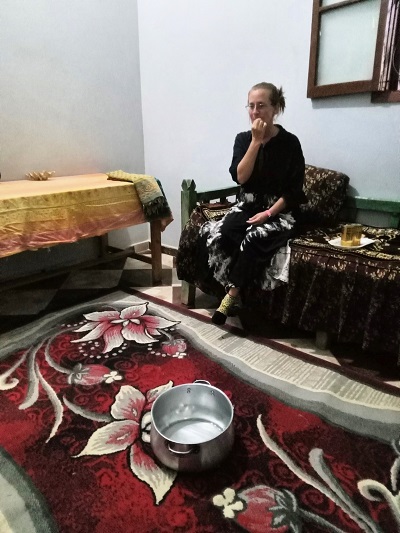
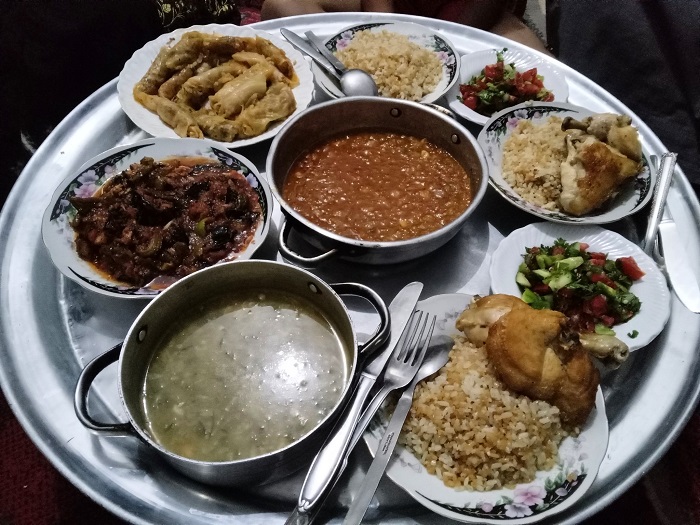
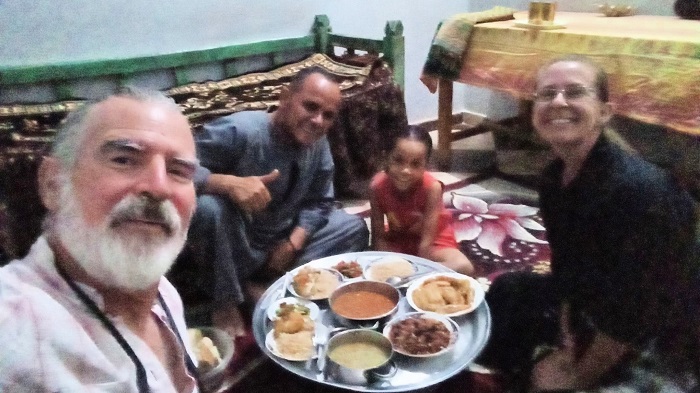
Other travel stories:
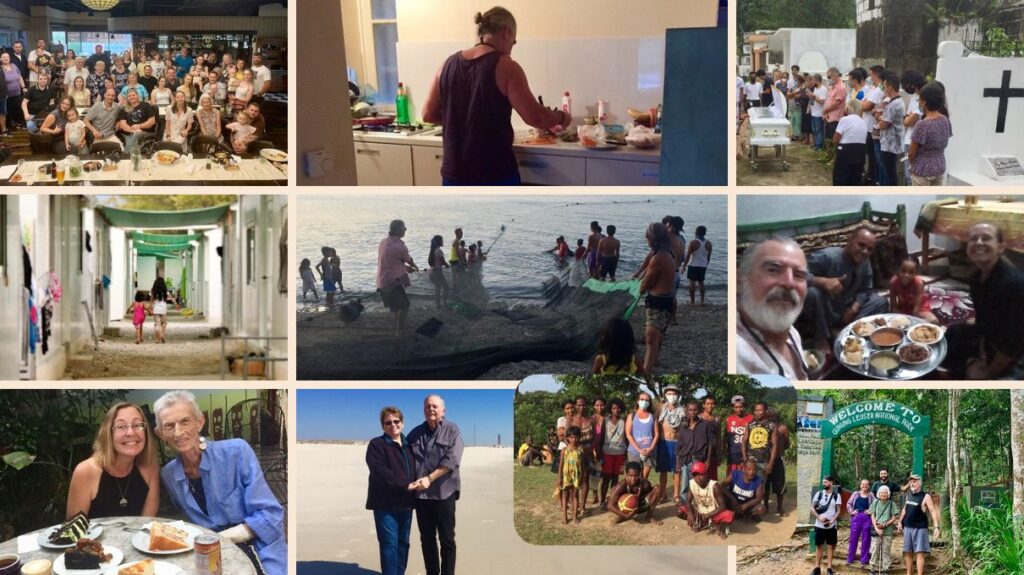
Top 10 ‘human’ experiences in 10 years of budget slow travel
Ellen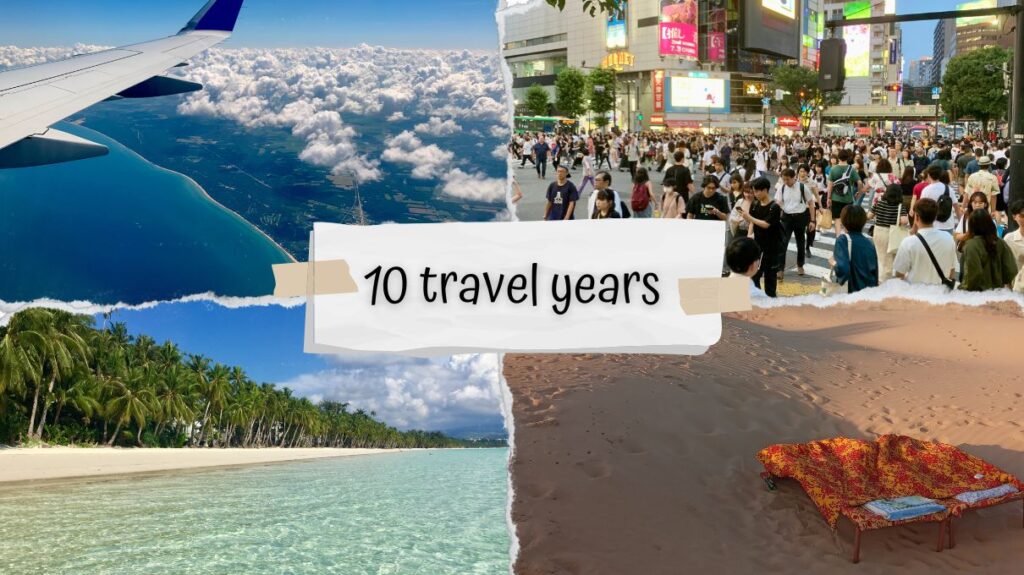
10th anniversary of budget slow travel in early retirement
Ellen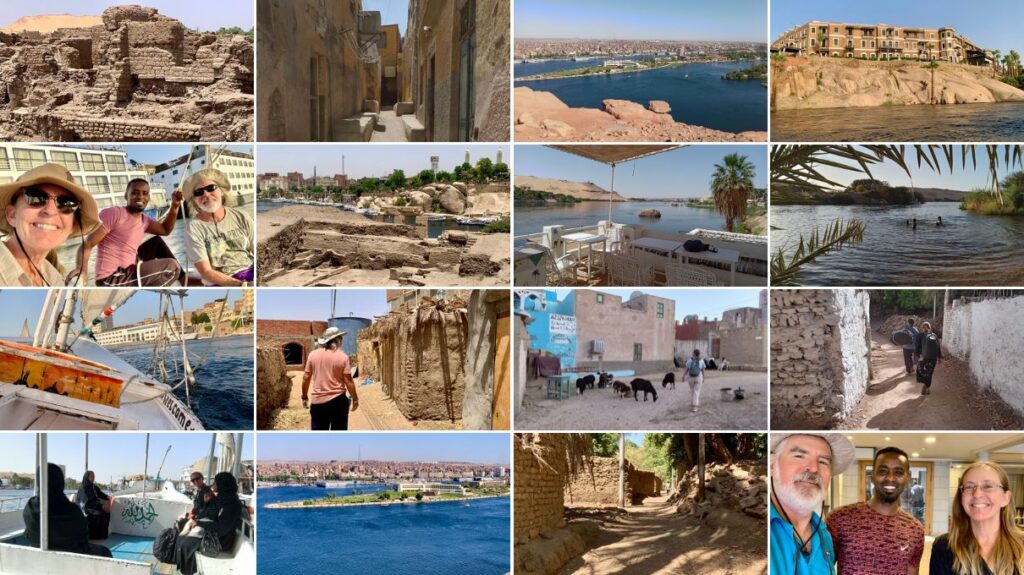
Elephantine Island has 7,000 years of history, a million reasons to visit
Ellen
Boycotts of American brands & uncomfortable questions for us travelers
Ellen
Extraordinary two-day orangutan trek in Sumatra
Ellen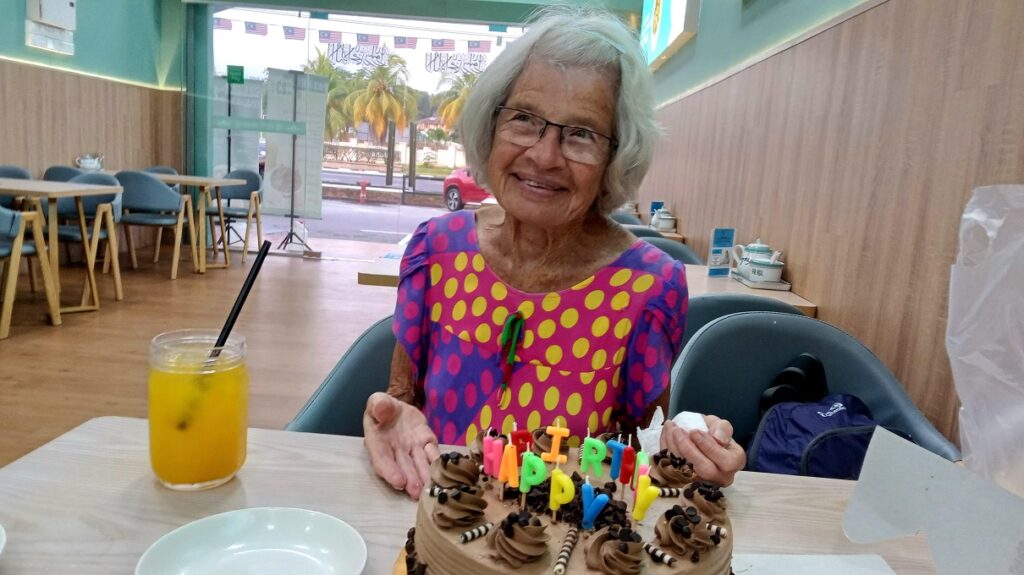
“Happy Birthday, Mom!”
Theo
Mom meets us in Malaysia
Theo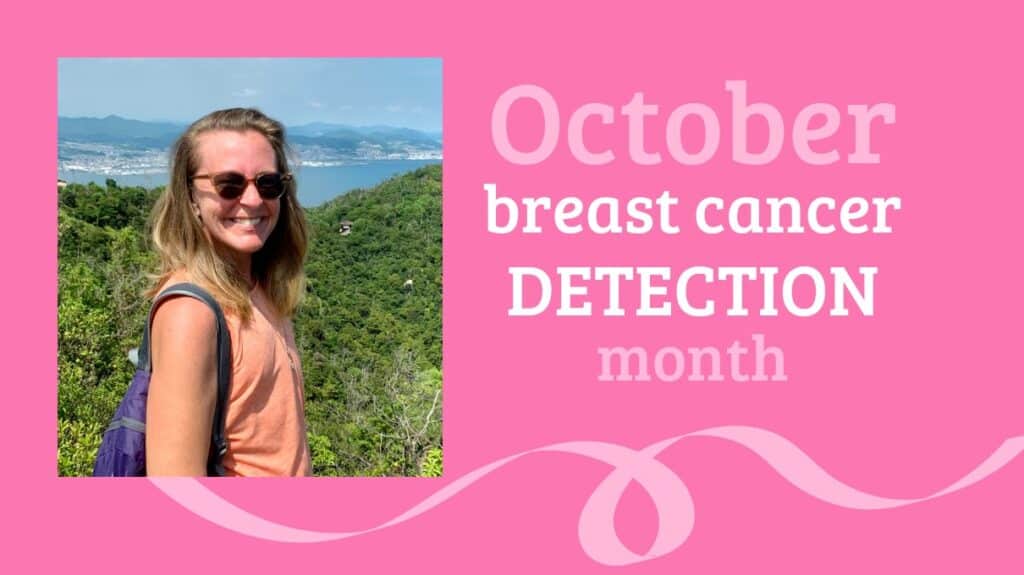
Breast Cancer ‘Detection’ Month
Ellen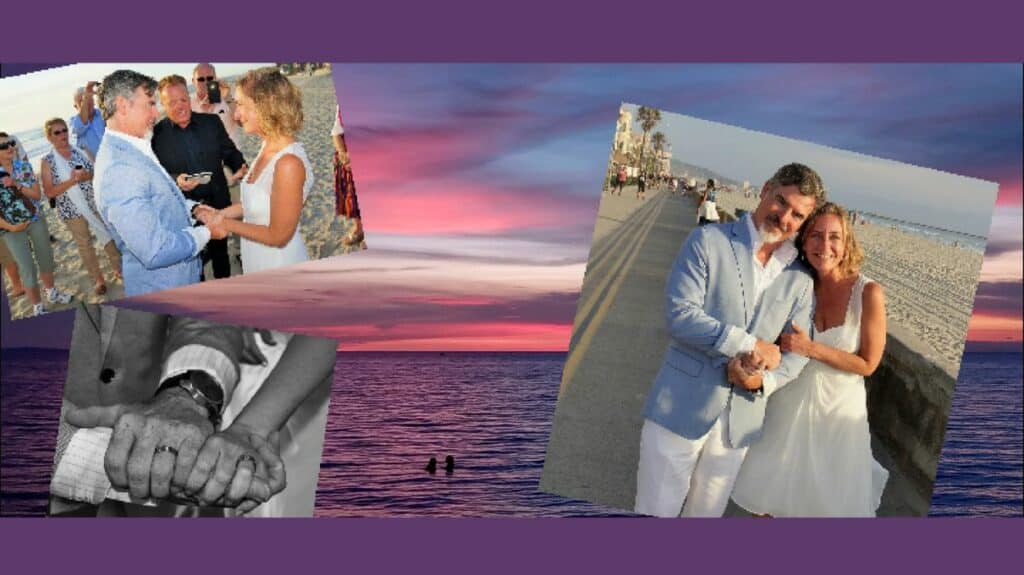
Unusual anniversary apart for Earth Vagabonds
Theo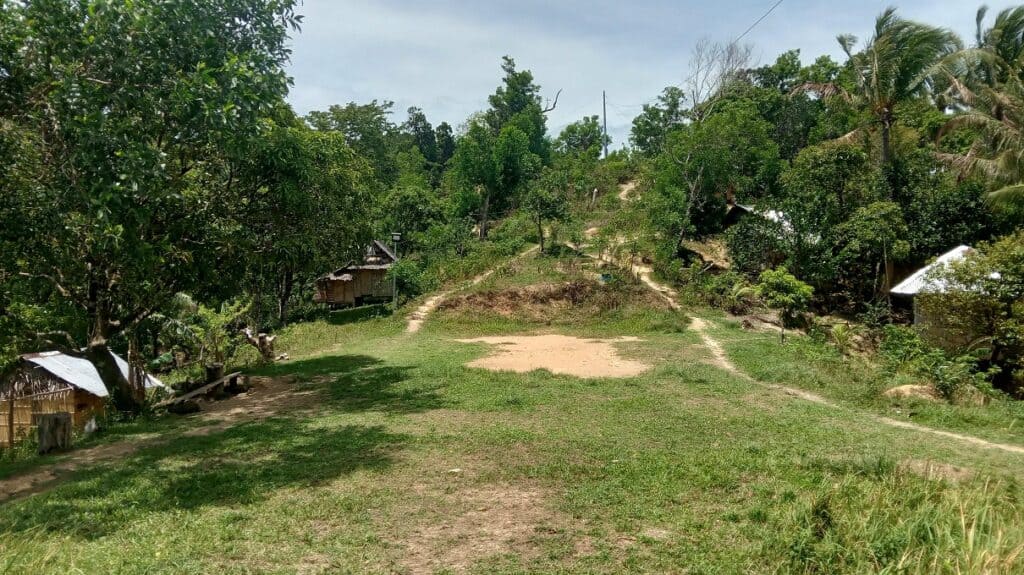
Return to Kurong – the Ati mountaintop village we helped in pandemic days
Theo
Philippine friendships endure beyond pandemic
Theo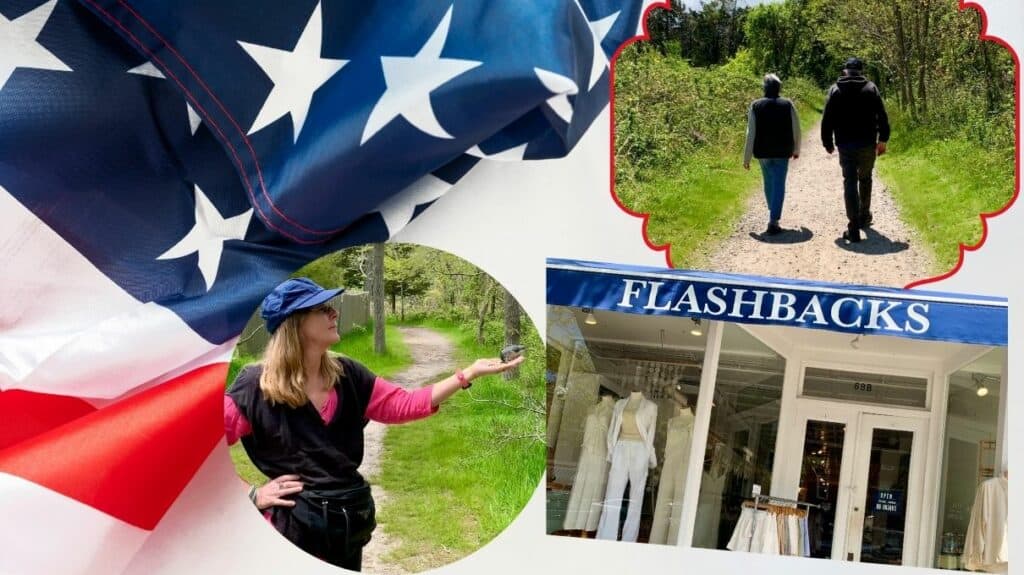
7 surprises on a trip home, plus a few flashbacks
Ellen